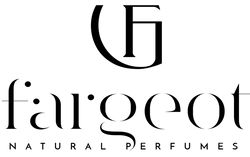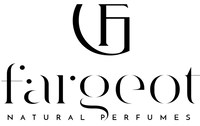What you need to know about paraben

Credit photo: Element5 Digital on Unsplash
We are starting a new series of blog posts about the different nasties you can find in many mainstream perfumes and other cosmetics and our first stop is paraben…
What is paraben?
Simply enough, paraben is a class of effective preservative with anti-bacterial and antifungal properties. It is widely used to increase the shelf-life of cosmetic products such as perfumes, but is also used in food.
Why does paraben have a reputation as a nasty?
Paraben started to be frowned upon when, during a study, traces of different types of paraben were found in the majority of breast tissues of the women studied. As cosmetics using parabens are often applied onto the skin, they enter the body through our pores and, as it is a preservative, it then stays within our tissues for a long time. Even though this hasn’t been proven to increase the chances of breast cancer, it is for most still a concerning fact.
Paraben also has a bad reputation of disrupting hormones in the body, mainly estrogen. Estrogen is a key hormone in women’s health, regulating the female reproductive system and secondary sex characteristics. Paraben is suspected of mimicking estrogen, meaning that the body can feel it is receiving a dose of estrogen higher than normal levels, triggering increased breast cell division and leading to growing tumours as well as tempering with reproductive functions.
Paraben is also a baddy for the environment. As it comes from cosmetic products onto our skin, it then goes from our skin to being washed down the drain comes shower time. Paraben then infiltrates community wastewaters, which has an impact not only on humans but animals as well, especially marine mammals.
What’s the alternative to paraben?
Scientific research studying the potential harmful effects of paraben on the human body have only shown that such negative effects happen when the exposure to paraben is really high. Cosmetics containing parabens do so in minimal quantities and are deemed safe in such controlled amounts by scientific bodies such as the FDA.
Nevertheless, brands and consumers increasingly choose to move away from using parabens altogether but this raises the question, what is the alternative?
The most common answer is Phenoxyethanol, which is another chemically-made preservative. It is highly debated whether Phenoxyethanol is safer than paraben as concerns are present in terms of increased risks of skin irritation as well as potentially causing harm to the developing central nervous system of breastfeeding infants.
Then, what’s a safe and healthy alternative you may ask? People wanting to stir away from harmful chemicals in cosmetics are choosing products simply free of preservatives such as Fargeot Natural Perfumes’ perfumes. Such products may harbour a shorter shelf-life than their paraben-loaded counterparts though their shelf-life is in most cases very respectable and they are your best bet to stir away from harmful chemicals altogether. Just be sure to check the expiry date :)

